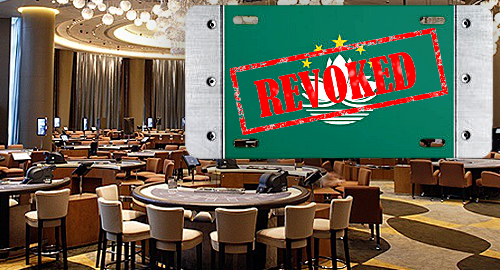 Nineteen Macau casino junket operators risk losing their ability to operate in the world’s largest gambling hub if they can’t step up their compliance game.
Nineteen Macau casino junket operators risk losing their ability to operate in the world’s largest gambling hub if they can’t step up their compliance game.
Speaking on the sidelines of this week’s Macau Gaming Show 2016, Gaming Inspection and Coordination Bureau (DICJ) chief Paulo Martins Chan said a review of Macau’s 145 approved junkets’ accounting systems had concluded that 19 operators’ practices were “unsatisfactory.”
Macau Business Daily quoted Chan saying the DICJ’s goal was to achieve “more regulated junket activity” and thus it was giving these 19 operators a window in which to improve their accounting practices. However, Chan warned that this window would close by “the end of the year.” This isn’t an empty threat, as the DICJ purged 35 junket operators in January for similar accounting shortcomings.
Speaking Tuesday at an MGS panel on junkets, Macao Polytechnic University associate professor Changbin Wang said the DICJ was “not aggressive enough” in soliciting information on the backgrounds of junket employees. Junket directors and shareholders with a stake above 5% stake must submit detailed paperwork to garner DICJ approval, but player reps and sub-agents must submit only their names and criminal records.
Wang said half the problem is that these second-tier staff are primarily based outside Macau and thus a proper investigation would require the cooperation of governments in other jurisdictions. Wang suggested the DICJ should empower a designated team to conduct suitably rigorous background investigations.
VIP gambling’s share of Macau’s gaming revenue fell to a record low 44% in Q3, but the CEO of mega-junket Suncity Group believes the sector is poised to rebound. Speaking to a media scrum at the MGS on Monday, Alvin Chau said the VIP business had bottomed out in 2015 but “we’ve seen some improvement this year. And I think in 2017, it will get even better.”
Chau offered no evidence to support his optimistic projection, but the junket business could get a boost if Macau allows the creation of a bad debtor blacklist. In May, the DICJ did an about-face by saying it now considered the industry’s long-requested blacklist a “viable” option. This week, the DICJ’s Chan said the blacklist was still very much a work in progress due to “a lot of legal issues” that need to be overcome.
Professor Wang said a debtor blacklist could help junkets avoid incurring any more unrecoverable debts, but he expressed doubt that the concept was “workable” due to Macau’s strict privacy laws. The launch of a ‘name and shame’ debtor website in 2013 resulted in the arrest of the site’s operator.